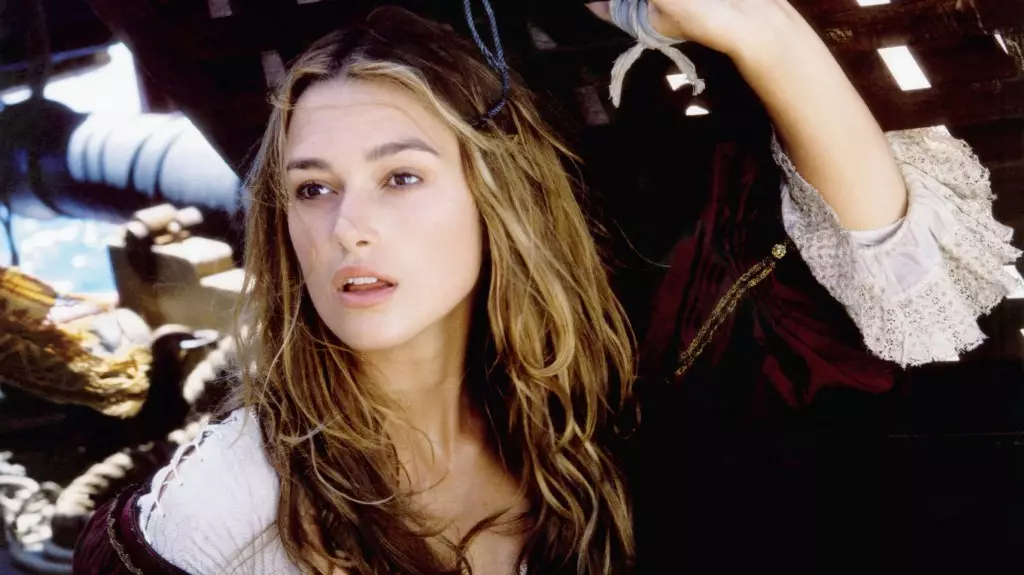Since her breakout role in the “Pirates of the Caribbean” franchise at the tender age of 17, Keira Knightley has firmly established herself as a significant figure in the film industry. The British actress, known for her roles in both blockbuster franchises and critically acclaimed dramas, has garnered critical acclaim and box office success. However, her journey has not been devoid of turmoil. In a recent interview with The Times of London, Knightley candidly expressed her reluctance to return to the franchise world, openly reflecting on the complexities of being thrust into the spotlight at such a young age.
Knightley’s association with “Pirates of the Caribbean” catapulted her to fame, but it also brought with it a double-edged sword. Observing the dichotomy in her career, she articulated, “It’s a funny thing when you have something that was making and breaking you at the same time.” This statement encapsulates the struggle of many young stars who find their identities closely tied to their early successes and the challenges that accompany being in public view. Her portrayal of Elizabeth Swann brought her international acclaim but also invited criticism and scrutiny.
As Knightley moved beyond the “Pirates” series, she found herself navigating an intricate landscape of expectations, both from the industry and the public. While the films bolstered her career by opening doors to significant dramatic roles—culminating in two Oscar nominations for “Pride & Prejudice” and “The Imitation Game”—they also left her grappling with public perception. The acute awareness of being “seen as sh—” due to her success highlights an uncomfortable reality familiar to many actors: the harsh judgment that can accompany fame.
Knightley’s commentary is an important reminder of the mental toll of growing up under scrutiny. As she explained, the stark contrast between her commercial success and personal turmoil left her in a state of confusion about her career trajectory. This struggle is often invisible to audiences but familiar to those who have experienced similar paths in Hollywood, where young talent is idolized one moment and vilified the next.
A notable theme in Knightley’s reflections is the connection between fame and mental health—issues that remained largely unaddressed during the early 2000s when she rose to prominence. She discussed the impact of public speculation regarding her body image, emphasizing how such invasive scrutiny can contribute to trauma. “I knew I wasn’t,” she remarked, referring to rumors about her health at a time when awareness around eating disorders was shifting but still limited. This acknowledgement illustrates the damaging effects of public shaming and the long-lasting consequences it can impose on young stars.
The actress’s experience serves as a cautionary tale for aspiring actors and industry watchers alike. As she continues to navigate the landscape of fame while prioritizing her mental wellness and family, Knightley sets an example by taking deliberate steps back from the Hollywood machine. After welcoming two daughters with her husband, musician James Righton, she has opted to be selective with her projects, seeking balance in her life as she enters a new chapter.
Looking ahead, Knightley is set to appear in Netflix’s upcoming series “Black Doves,” a six-part spy-thriller that hints at her willingness to explore new genres while maintaining a strategic distance from the pressures of franchise films. This latest role allows her to engage with different characters while showcasing her versatility as an actress. Scheduled for release on December 5, it suggests a thoughtful evolution in her career that allows her to reclaim agency over her artistic choices.
Keira Knightley’s journey through Hollywood provides a profound insight into the complexities of fame, personal growth, and the courage to step away from what does not serve one’s well-being. Her reflections not only illuminate her past experiences but also offer a hopeful outlook on redefining success in the unforgiving landscape of the entertainment industry. As she continues to evolve both personally and professionally, Knightley’s stance reflects a broader shift in the conversation around fame, mental health, and the importance of taking control of one’s narrative.



Leave a Reply